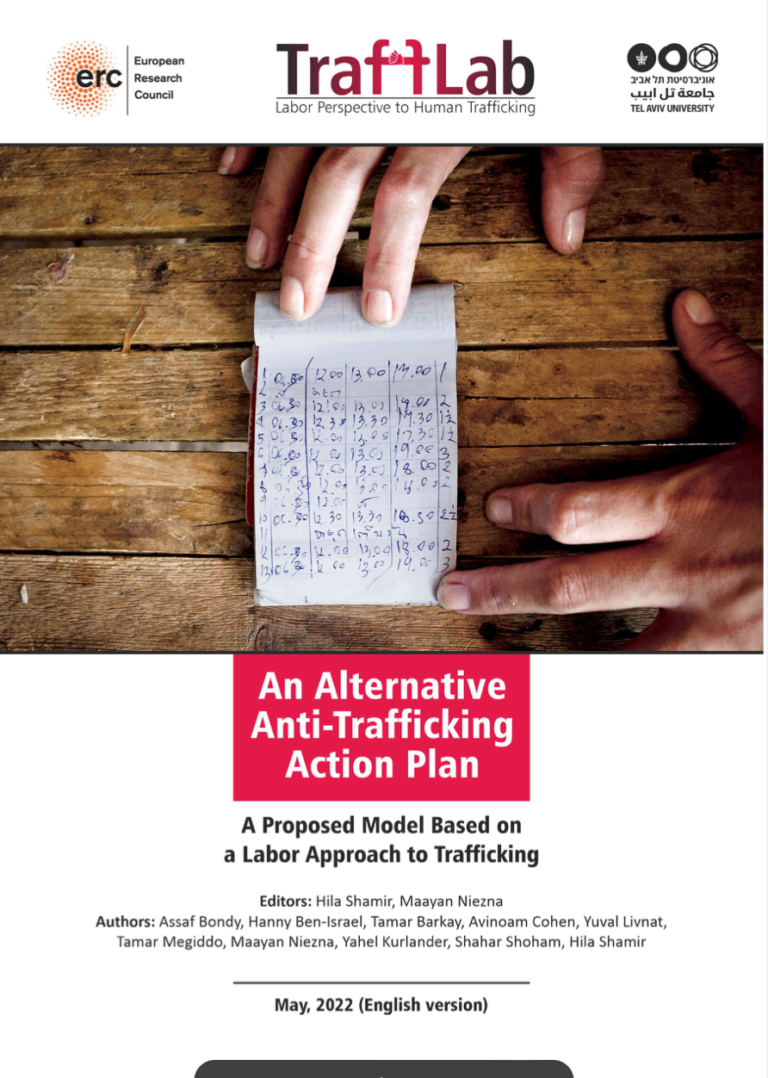TraffLab’s Alternative Anti-Trafficking Action Plan (the “Alternative Plan”) provides a labor-based alternative approach to the new Israeli national plan to address human trafficking 2019-2024, published by the Ministry of Justice in January 2019. The Alternative Plan outlines the directions we believe need to be taken in order to address the structural problems that underlie serious phenomena that we are witnessing in the Israeli labor market today, and that we do not believe the accepted approach to combating human trafficking addresses. The Alternative Plan as a whole reflects a vision, an ambitious action plan for a possible future, which on the one hand is firmly rooted in the legal situation in Israel, and on the other seeks to offer new thinking in the field to locate and identify human trafficking engines. The program has three parts: prevention, enforcement, and partnership, all of which reflect the need to address the root causes of severe forms of labor market exploitation. Each section contains a number of short chapters which focus on different aspects of the immigration regime and labor market regulation in Israel, that create structural vulnerability to human trafficking, and offers concrete policy proposals for change. Along with more familiar elements for practitioners in the field -such as aspects of tied visas, debt and recruitment fees, and bilateral agreements – the Alternative Plan includes a discussion of many other aspects including, among others, discussions on how employment structures – private bureaus, manpower agencies, and construction agencies – and exclusion from protective legislation and lack of workers’ rights enforcement create vulnerability to exploitation and human trafficking, as well on the need for a comprehensive reform of the victim identification system in Israel. The program also addresses the potential role of labor unions in representing and supporting workers in sectors prone to trafficking, and the responsibilities of corporations for human trafficking down their supply chains.


